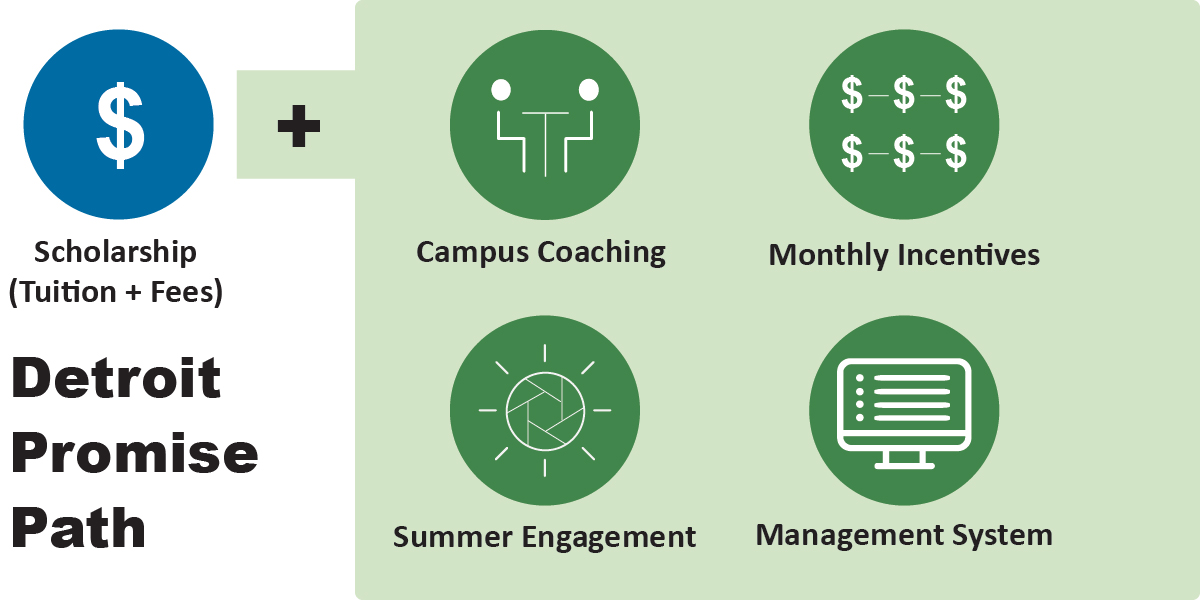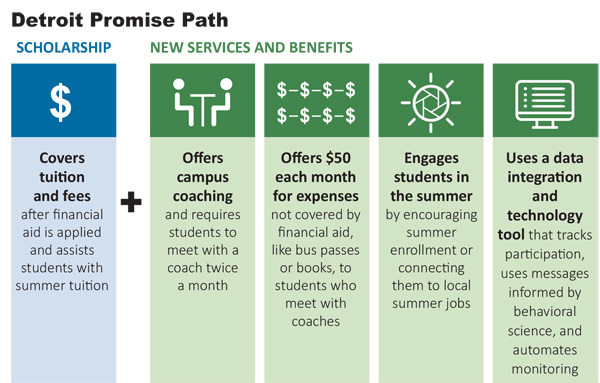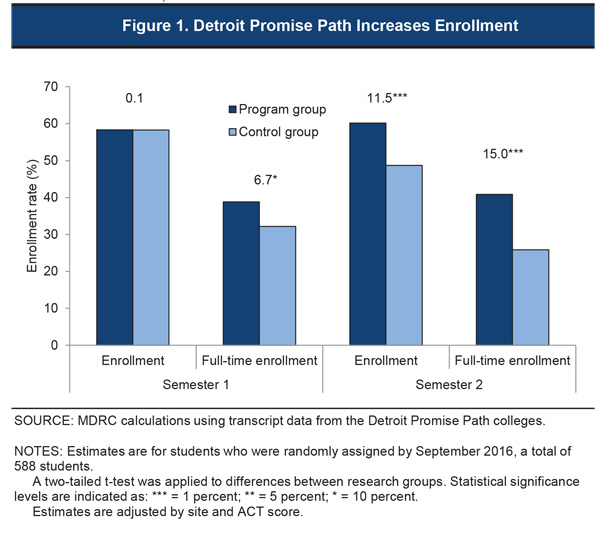Enhancing Promise Programs to Improve College Access and Success

THE DETROIT PROMISE PATH
The Detroit Promise, administered by the Detroit Regional Chamber, allows the city’s high school graduates to attend local colleges tuition-free. The community college scholarship program covers any difference between financial aid and tuition for up to three years at five area community colleges: Henry Ford College, Macomb Community College, Oakland Community College, Schoolcraft College, and Wayne County Community College. Although the program helps Detroit’s students enroll in college, too few stay in school and graduate. To improve students’ academic outcomes, the Chamber and MDRC partnered to create the Detroit Promise Path, which adds four components to the existing scholarship program: campus coaches who help students navigate academic and personal issues; monthly financial support contingent on meeting with coaches; enhanced summer engagement; and monitoring and messages informed by behavioral science through a management information system created by MDRC. These evidence-based strategies come from MDRC’s experience designing and evaluating community college programs, and MDRC provided extensive technical assistance to set up the program, develop cost-effective management strategies, and ensure successful operation.

- Detroit Promise Path was implemented with fidelity to the model and participation was high. More than 95 percent of students responded to coaches’ outreach and two-thirds of enrolled students met with coaches as directed.
- Students appreciate the program. Ninety-six percent of surveyed students who had been in contact with a coach said the program was “valuable” or “very valuable” to them.
- The program had a sizable impact on enrollment in the second semester and on full-time enrollment in the first and second semesters. The figure on this page shows enrollment in the first year.

WHAT DO THESE RESULTS MEAN FOR OTHER COLLEGE PROMISE PROGRAMS?
Programs that are not achieving the academic success they would like should consider the other barriers students may be facing. MDRC’s wealth of experience designing and evaluating scholarship programs has produced several important findings that may be instructive: Low-income students face many expenses beyond tuition they cannot afford. Even when expenses are covered, they often struggle with insufficient support as they navigate complex college processes, an academic environment very different from high school, and competing demands such as work and child care. In Detroit, the program’s coaches are prepared to assist students with these topics and help them stay enrolled. Tracking students’ participation electronically allows staff members to monitor them and improve the program to meet their needs — and, most important, to help them stay in college. In addition to the Detroit Promise, MDRC is launching a partnership with the Los Angeles Promise in 2017. MDRC welcomes other Promise programs seeking to move from access to success.
1 U.S. Department of Education, Digest of Education Statistics: 2014 (Washington DC: National Center for Education Statistics, 2016).
2 University of Pennsylvania Graduate School of Education, “College Promise Programs” (website: http://ahead-penn.org/creating-knowledge/college-promise, accessed on June 8, 2017).







